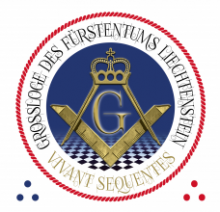Freemasonry is not a religion, but it teaches its members to be active in their chosen faith. What attracts a man to Freemasonry? Every man comes, of his own free will and accord, with his own individual needs and interests. One man may join so that he can associate with other men who believe that only by improving themselves can they hope to improve their society. Another man may join because he is looking for a focus for his charitable inclinations. And yet another may be attracted by a strong sense of history and tradition. Many join simply because they knew a friend or relative who was a freemason and they admired that man’s way of living his life. All who join and become active discover a bond of brotherly affection and a community of mutual support; a practical extension of their own religious and philisophical beliefs.
Each lodge is warranted by a national or regional Grand Lodge. There are over 200 recognized masonic jurisdictions around the world and no central authority, although all can trace their history from the United Grand Lodge of England (or its precursor Grand Lodges), the Grand Lodge of Scotland or the Grand Lodge of Ireland. They operate under a system of mutual recognition, working within a loose set of Landmarksdefining recognized Freemasonry.
Why are the rituals and ceremonies secret? Tradition, more than anything — there have been times and places where promoting equality, freedom of thought or liberty of conscience was dangerous. Also, a lesson that must be earned may have a greater impact. Most importantly though is a question of perspective. Each aspect of the ritual has a meaning. Freemasonry has been described as a system of morality, veiled in allegory and illustrated by symbols. Such characteristics as virtue, honour and mercy, such virtues as temperance, fortitude, prudence and justice are empty clichés and hollow words unless presented within an ordered framework. The lessons are not secret but the presentation is kept private to promote a clearer understanding in good time.
It is also possible to view masonic secrecy not as secrecy in and of itself, but rather as a symbol of privacy and discretion. By not revealing masonic secrets, or acknowledging the many published exposures, freemasons demonstrate that they are men of discretion, worthy of confidences, and that they place a high value on their word and bond.
But the true secrets of a freemason are not contained in the ritual. A freemason who is true to his obligation will not reveal the modes of recognition, but they are not truly secret; this is demonstrated by the number of exposures that have been published over the centuries. The secrets of a freemason are those personal, private, and lawful, aspects of a man’s life that he may choose to share with a brother, a brother who will keep those secrets. This is not secretiveness; this is discretion. There is also that secret which is not kept secret but is only revealed to those who realize the happiness that comes from living a good life.
It is a brotherhood which permits to enrich oneself from others’ experiences and to reply practically to problems about which our epoch poses to each and everyone across a multitude of points of view. „Modernity“ is no longer associated to a monolithic idea but takes into account the complexity and the richness of our various connections.
It is a spiritual step, structured in as much as a humane organisation and as a way of life. The Masonic Organisation is there to assure freedom and independence in one’s work as well as securing collective support. The road is made of stages which permit regular progress without any possibility of conferring powers.
With this mixture of individual liberty and Tradition, which could seem surprising, Freemasonry has been able to survive intact from the 17th Century until now, remaining simultaneously unchanged and yet never old-fashioned.
